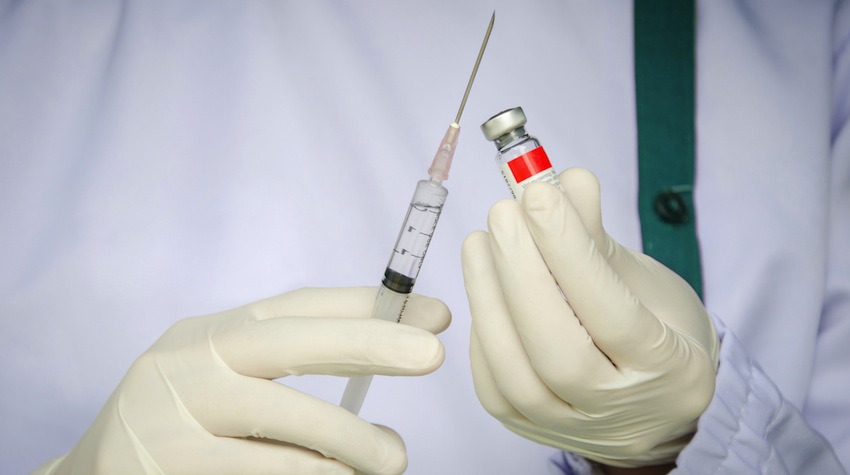Researchers Develop Vaccine To Boost Immune Systems of Patients With Leukemia

Vaccine Image via Shutterstock
Scientists at the Dana-Farber Cancer Institute have developed a “personalized” tumor vaccine, now in clinical trials, that boosts the immune systems of patients with advanced leukemia after they receive bone marrow transplants. After surgery, leukemia patients often lack the ability to fight cancer effectively, so this new vaccine will help them to develop better immune responses and hopefully eliminate cancer cells.
The study, which was published in the Journal of Clinical Investigation in August, is a part of Dana-Farber’s efforts to eliminate the risk of relapse for leukemia patients after they receive bone marrow transplants from donors. According to a report by Dana-Farber, there is a high rate of relapse after transplant among patients with chronic lymphocytic leukemia, especially because many of those patients receive transplants in an effort to reboot their own immune defenses, which are no longer functioning well. This new vaccine, which has only been used so far during a Phase 1 clinical trial, may take the pressure off of patients’ own immune systems if widely distributed, allowing them to rely on the vaccine instead.
The vaccine is “personalized”, meaning that it is made up of each patient’s own inactivated leukemia cells, combined with an immune stimulant. The vaccine stirs up the body’s immune system and is given to the patient in several doses. This boost in the immune system gives the body better odds when it comes to attacking cancer cells.
“Our studies suggest that autologous tumor cell vaccination is an effective strategy to advance long-term leukemia control following transplants from donors,” said Catherine Wu, MD, the senior author of the study, in the report. “Although this was a phase 1 study and not powered to look at questions of clinical efficacy, we did see promising clinical activity.”
During the study, the vaccine was administered between 30 and 100 days after each of the study’s 22 patients had received a transplant, with some patients receiving as many as six vaccine doses. Each patient had advanced leukemia, according to the study, and 13 of the patients had evidence of the leukemia in their bone marrow at the time of transplant.
Six months after the transplant, the majority of the patients in the study showed some form of clinical response. 10 patients were completely in remission, and six were partially in remission. After almost 3 years, 13 patients remained in complete remission. Although a larger study with more patients is needed to confirm the benefits of the vaccine, the study’s authors note that the strategy will hopefully translate into a clinical benefit in the near future for patients with advanced chronic lymphocytic leukemia and other types of cancer.


